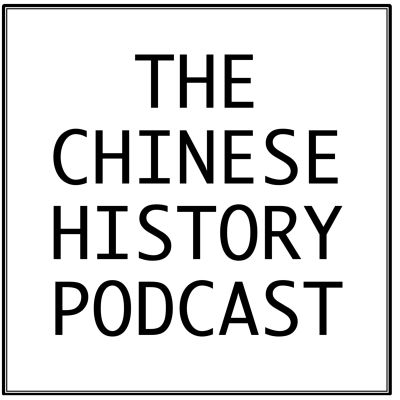We are a group of Chinese history PhD students looking to make Chinese history more accessible to the general public. Our podcast will cover a broad range of topics in Chinese history or topics related to Chinese history in both the premodern and the modern periods. Our content will be composed of both interviews with scholars and individually narrated episodes on selected topics.
https://thechinesehistorypodcast.podbean.com
episode 12: Professor Joanna Waley-Cohen on New Qing History
Since the 1990s, the New Qing History school has loomed large in the study of the Qing dynasty. It has greatly informed not only the study of the Qing but study of other dynasties as well. Yet what exactly is New Qing History? What is "new" about it? How did it come into being? How was it received in China and the West? To answer these questions, we talked to Professor Joanna Waley-Cohen of NYU, one of the leading scholars of the Qing dynasty.
Contributors
Joanna Waley-Cohen
Professor Joanna Waley-Cohen is the Provost for NYU Shanghai and Julius Silver Professor of History at New York University. Her research interests include early modern Chinese history, especially the Qing dynasty; China and the West; and Chinese imperial culture, particularly in the Qianlong era; warfare in China and Inner Asia; and Chinese culinary history, and she has authored several books and articles on these topics. In addition, Professor Waley-Cohen has received many honors, including archival and postdoctoral fellowships from the American Council of Learned Societies, Goddard and Presidential Fellowships from NYU, and an Olin Fellowship in Military and Strategic History from Yale.
Yiming Ha
Yiming Ha is a Ph.D. candidate in the Department of History at the University of California, Los Angeles. His current research is on military mobilization and state-building in China between the thirteenth and seventeenth centuries, focusing on how military institutions changed over time, how the state responded to these changes, the disconnect between the center and localities, and the broader implications that the military had on the state. His project highlights in particular the role of the Mongol Yuan in introducing an alternative form of military mobilization that radically transformed the Chinese state. He is also interested in military history, nomadic history, comparative Eurasian state-building, and the history of maritime interactions in early modern East Asia. He received his BA from UCLA and his MPhil from the Hong Kong University of Science and Technology.
Credits
Episode no. 12
Release date: June 25, 2022
Recording location: Los Angeles, CA/New York, NY
Transcript
Bibliography courtesy of Professor Waley-Cohen
Images
Cover Image: The Qianlong Emperor, who reigned from 1735 to 1796. After he abdicated, he continued to retain power as retired emperor until his death in 1799. He is the longest-reigning monarch in Chinese history and one of the longest in the world (Image Source).
The headquarters of the First Historical Archives in Beijing, which houses documents from the Qing. The opening of this archive and access to the Manchu-language documents held within helped give birth to New Qing History. (Image Source)
A copy of a Qing-era civil service examination answer sheet. Note the Manchu script on the seal. Currently held in UCLA Library Special Collections (Photo by Yiming).
The Putuo Zongcheng Temple, a Buddhist temple in the Qing's Rehe Summer Resort (in today's Chengde, Hebei province). The temple was built between 1767 and 1771 by the Qianlong Emperor and was a replica of the Potala Palace in Lhasa. It is a fusion of Tibetan and Chinese architectural styles and is one of the most famous landmarks in the Chengde Summer Resort. (Image Source)
A painting of a European-style palace constructed by the Jesuits for the Qing emperors in the Old Summer Palace (Yuanmingyuan). Note the fusion of Chinese and European styles. The Old Summer Palace was looted and burned by Anglo-French forces in 1860. The twelve bronze head statutes in front of the building have mostly been repatriated back to China, although some are in the hands of private collectors. (Image Source)
The Qianlong Emperor commissioned a series of artwork commemorating the "Ten Great Campaigns" of his reign. This particular piece of artwork depicts the Battle of Thọ Xương River in 1788, when the Qing invaded Vietnam. These artworks were collaborative pieces between Chinese and Jesuit painters. (Image Source)
References
Patricia Berger, Empire of Emptiness: Buddhist Art and Political Authority in Qing China. Honolulu: University of Hawaii Press, 2003.
Pamela K. Crossley, A Translucent Mirror: History and Identity in Qing Imperial Ideology. Berkeley: University of California Press, 1999.
Mark C. Elliott, The Manchu Way: The Eight Banners and Ethnic Identity in Late Imperial China. Stanford, CA: Stanford University Press, 2001.
Johan Elverskog, Our Great Qing: The Mongols, Buddhists, and the State in Late Imperial China. Honolulu: University of Hawaii Press, 2006.
Philippe Foret, Mapping Chengde: The Qing Landscape Enterprise. Honolulu: University of Hawaii Press, 2000.
Jonathan S. Hay, Shitao: Painting and Modernity in Early Qing China. Cambridge: Cambridge University Press, 2001.
Ho Ping-ti, “The Significance of the Ch’ing Period in Chinese History,” Journal of Asian Studies 26.2 (1967): 189-95
Ho Ping-ti, “In Defense of Sinicization: A Rebuttal of Evelyn Rawski’s `Reenvisioning the Qing,’” Journal of Asian Studies 57.1 (1998): 123-55.
Laura Hostetler, Qing Colonial Enterprise: Ethnography and Cartography in Early Modern China. Chicago: University of Chicago Press, 2001.
Susan Mann, Precious Records: Women in China’s Long Eighteenth Century. Stanford, CA: Stanford University Press, 1997.
James P. Millward, Beyond the Pass: Economy, Ethnicity, and Empire in Qing Central Asia, 1759-1864. Stanford, CA: Stanford University Press, 1998.
Ronald C. Po, The Blue Frontier: Maritime Vision and Power in the Qing Empire. Cambridge: Cambridge University Press, 2018.
Evelyn S. Rawski, The Last Emperors: A Social History of Qing Imperial Institutions. Berkeley: University of California Press, 1998.
Evelyn S. Rawski, “Presidential Address: Reenvisioning the Qing: The Significance of the Qing Period in Chinese History,” Journal of Asian Studies 55.4 (1996): 829-50.
